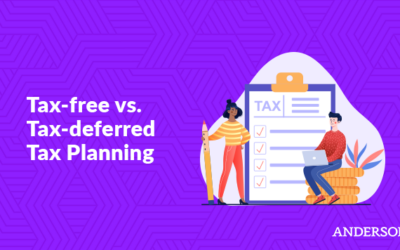Excise taxes are commonly levied against consumables and activities, like alcohol, cigarettes, and sports betting. Other purchase categories, such as airline tickets and insurance premiums, may be subject to excise taxes as well. It all varies from state to state.
9 Products and Services Subject to an Excise Tax
- Alcohol and Tobacco
- Gasoline
- Firearms
- Airline Tickets
- Vehicles
- Retirement Accounts
- Gambling
- Entertainment
- Tanning
City and state governments and the federal government have the right to issue an excise tax, just as they have the right to issue property taxes and income taxes. Typically, excise taxes are paid by a business, which in turn cover the excise tax cost by marking up the price paid by consumers.
What is an Excise Tax?
There are two types of taxes when it comes to excise tax (also called a duty tax).
An ad valorem excise tax are fixed percentage rates attached to certain goods or services (ad valorem is Latin for according to value). For example, Washington D.C. has a whopping 14.5 percent ad valorem tax attached to hotel bookings, whereas nearby Virginia has none.
Specific excise taxes are set on a per-unit basis. Some of the more common federal excise taxes are cigarettes ($1.01 per pack of 20), beer ($7 for 60k barrels), and cruise ship fare ($3 per traveler). As you can see, some specific excise taxes are low in comparison to the price of goods or services (such as cruise ship tickets), while others are more expensive (cigarettes).
Since excise taxes can be levied by the feds, the state, and the city, they can add up certain items. Returning to the District of Columbia, local cigarette-specific excise taxes are $4.98 per pack of 20. Add that to the $1.01 federal excise tax, and DC cigarette smokers are looking at an extra $6 (minus one penny) for every pack they purchase.
9 Products and Services Subject to an Excise Tax
Now that we’ve explained what an excise tax is and given a few examples, let’s talk about some of the products and services subject to an excise tax.
1. Alcohol and Tobacco
Alcoholic beverages and tobacco-based products, such as cigarettes, cigars, and chewing tobacco, are often subject to state and local excise taxes (in addition to the federal excise tax). While these excise taxes do create tax revenue, they are also set up to discourage unhealthy behaviors, such as excessive consumption of alcohol and smoking. This is why such taxes are sometimes referred to as sin taxes.
There once was a time when alcohol was completely outlawed in the United States. However, the Prohibition Era actually resulted in more crime and illegal activity around the secret distribution of alcohol. Excise taxes are a sort of happy medium that allows the government to financially discourage people from partaking without completely eliminating the rights to do so.
2. Gasoline
The federal excise tax on gasoline is $0.183 per gallon, which means that filling up a 15-gallon tank will cost a consumer $2.75. The states with the highest excise taxes on fuel are Pennsylvania ($0.586 per gallon) and California ($0.533 per gallon), while Alaska is the lowest ($0.0895 per gallon).
These excise taxes are just part of the complex picture of why gas prices are higher in some locations than others. Other factors include supply and demand, proximity to a pipeline or refinery, sales tax, etc.
3. Firearms
A federal excise tax of 10 percent is applied to the sale of handheld guns, like pistols and revolvers, while 11 percent is applied to other guns—rifles and shotguns, for example. Ammo is also subject to excise taxes.
The excise tax on firearms was created in 1919. Since then, it has been highly controversial, with many critics claiming it is a form of thinly veiled gun control. Regardless, anyone purchasing a firearm will have to pay a federal tax. Firearms may be subject to additional excise taxes in certain states, while others are regarded as more gun-friendly.
4. Airline Tickets
An excise tax of 7.5 percent is levied against each and every airline ticket. Presumably, these ad valorem taxes are used to defray the expense of managing air traffic, safety, and reducing the environmental impact of jet travel.
In some instances (such as with the recent CARES act), the federal government will create air travel excise tax holidays in order to lower ticket prices and encourage consumer travel.
While you may not be able to avoid the excise tax levied against airline travel, you can write off certain business travel expenses. Schedule a consultation with one of our tax experts today to learn more.
5. Vehicles
In most states, when you purchase a new vehicle, you will need to pay a motor vehicle excise tax. In some states, like Oklahoma and Delaware, this tax depends on the price of the car, while in others, like Pennsylvania, it depends where you purchase the car.
As you might guess, California is one of the most expensive places to purchase a car (7.25 percent car tax), while less populated states, like Alaska, are the least expensive, at least in terms of taxes (0 percent + local vehicle registration taxes). The revenue from this motor vehicle excise taxation is typically used to defray infrastructure costs caused by the presence of motor vehicles on the road, such as repairing freeways and paving new roads.
6. Retirement Accounts
Excise taxes may also be charged on financial accounts, in certain situations.
Overfunding your IRA will trigger excise taxes, with six percent applied to IRA contributions that exceed the annual allowance. The maximum contribution limit towards an IRA in 2021 is $6k per person, and $7k if the individual is over the age of 50.
If, for example, someone contributed $10k to an IRA, their excise tax rate would yield a federal tax of $320. You will also owe an excise tax bill if you take money out of your IRA before the age of 59.5 years, which is a steep rate of 10 percent in addition to any income tax rate levied against the amount. There are certain exceptions to this rule, such as taking money out of the IRA to fund a home purchase if you are a first-time buyer.
7. Gambling
Gambling seems like a simple affair. You walk into the casino with money, trade them in for chips, and exchange whatever you won or lost for cash on your way out. Done deal, right?
As it turns out, if you win more than $1,250 on the slots, your federal excise tax bill will be 0.25 percent of the total winnings, in addition to any tax bill the state tax collector will assess.
Often the tax rate is stepped based on the amount won. For example, in the state of Nevada, winnings under $50k are taxed at 3.5 percent, while anything more than $134k is taxed at 6.75 percent. As you can imagine, this tax rate is used to create revenue for the state, which is good news for Nevada residents, who pay a much lower property tax than residents in other states.
8. Entertainment
Did you know that movies, music festivals, and amusement parks are also subject to an excise tax? These entertainment taxes vary by state, but states strapped for revenue to fund projects have turned to entertainment taxes to balance their budget.
Unfortunately, you don’t have to leave home to experience a run-in with the tax collector on this front either, as nearly half the states in the United States are now taxing streaming services like Hulu, Netflix, and Disney at a six percent tax rate, which of course these companies pass on to the consumer.
9. Tanning
Did you know that tanning salons must pay an ad valorem tax excise bill of 10 percent? That means if a customer pays $100 for a tanning session, the tanning salon will need to pay a $10 tax to the government. Like most other goods and services, the cost of this tax is built into the price consumers pay.
The full list of excise taxable products and activities can be found in the tax code published by the IRS. Gasoline, airline tickets, tobacco, alcohol, and health related services bring in the most revenue, bringing in an extra $100 billion annually for the federal government.
How to Calculate Excise Tax
As mentioned, excise taxes are often levied on a business. That means you won’t necessarily see the tax on your receipt, though there are obviously a few exceptions. For example, hotels will typically list the state lodging tax on an invoice, but your favorite local brewery will probably not specify excise taxes on the menu or bar tab—they’ll just include it in the final price of the drink.
You can look up most excise taxes online with a simple search. These taxes are public information because they are voted into law by elected constituents.
Are Excise Taxes Deductible?
Excise taxes paid on goods or services for personal use are not tax deductible. Remember, though, that excise taxes are typically levied against businesses. This means that part of filing your small business taxes can include deductions for excise taxes.
If you are self-employed, speak to your tax advisor and see if structuring your work activities as a corporation could help you pay less taxes by deducting expenses, such as excise taxes levied on items you need to run your business.
Excise Taxes Generate Revenue for the Government, and Generally Can’t Be Avoided
Sometimes taxes can be avoided, but if you purchase any of the goods or services attached to an excise tax, you will have to pay extra for that good or service.
Excise taxes are different than sales taxes in that the excise tax is technically paid by the business, even if the business passes on the cost of these taxes to the consumer by increasing the price.
Flying on a commercial airliner, booking a hotel room, buying a firearm, purchasing cigarettes or alcohol, buying a new motor vehicle, and many other activities trigger excise taxes at the federal and state level. The three main reasons these excise taxes exist are to generate more tax revenue, fund the systems that support the item purchased, or to deter consumers from purchasing certain items for health or environmental reasons. Of course, the choice to purchase such items is still within the power of consumers, they will just have to pay their dues.
While you may not be able to avoid an excise tax, there are other things you can do to lower your tax liabilities. We highly recommend joining the Anderson Advisor’s Tax Tuesday Webinar. Each week, our experts discuss the in-depth tax tips and strategies that help business owners reduce their annual tax burden. Don’t put off tax planning any longer, reserve your spot today!
Free Strategy Session with an Anderson Advisor
Receive a detailed risk assessment to assist in lowering problem areas that could wipe out all of your assets with one wrong move. Speak with an Anderson Professional Advisor to get your FREE Strategy Session.
Limited-Time Offer: ($750 value.)















